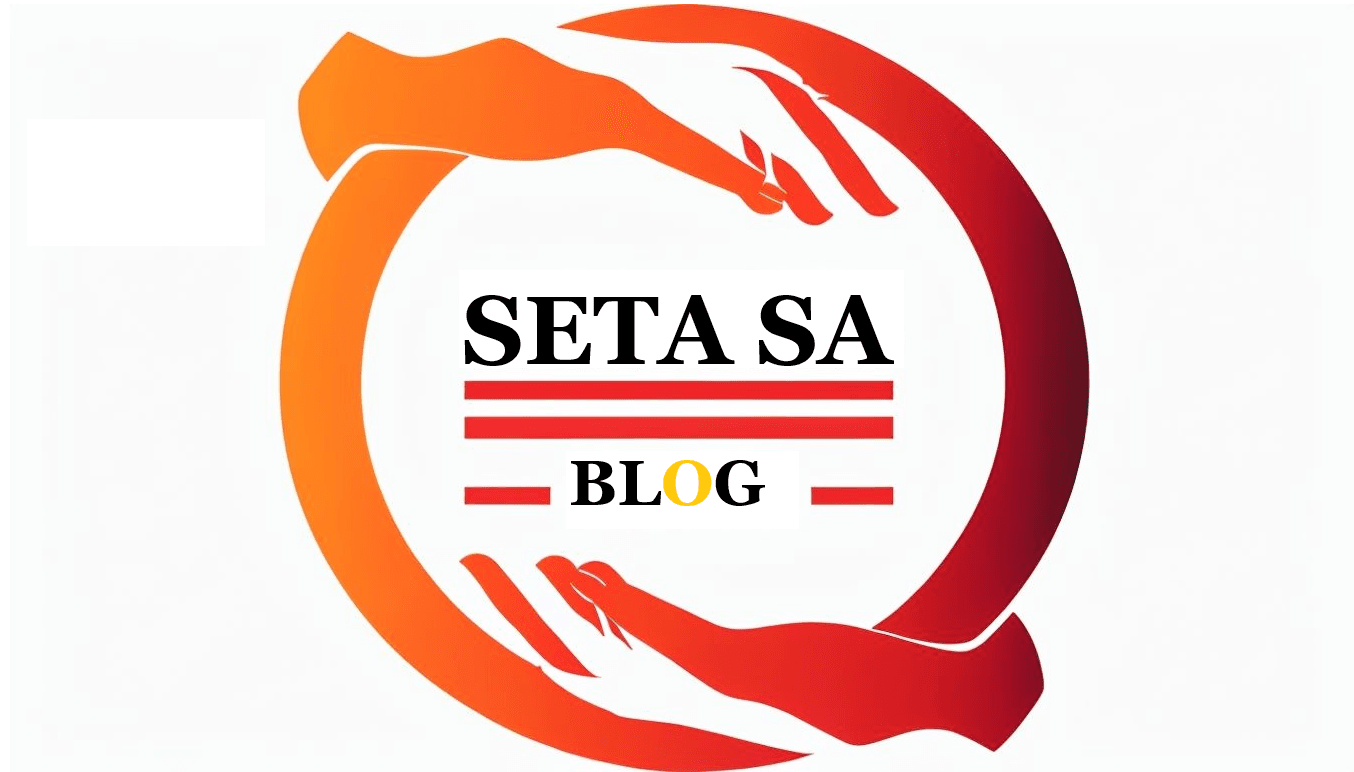Hidden SETA Jobs You Didn’t Know About
In South Africa, the Skills Education and Training Authorities (SETAs) play a crucial role in fostering skills development and creating employment opportunities. While many are familiar with the more common SETA-funded programs, a wealth of hidden job opportunities exist within these sectors. This article delves into these lesser-known roles, providing insights into the skills, qualifications, and industries where these opportunities thrive. Understanding these hidden gems can significantly enhance your job search and career prospects.
What are SETAs and Why are They Important?
Before exploring the hidden job market, it’s essential to understand the role of SETAs. SETAs are statutory bodies established under the Skills Development Act of 1998. Their primary function is to promote and facilitate skills development in specific sectors of the South African economy. They achieve this by:
- Developing Sector Skills Plans (SSPs)
- Disbursing funds from the Skills Development Levy (SDL)
- Accrediting training providers
- Monitoring and evaluating training programs
- Supporting learnerships, apprenticeships, and other skills development initiatives
The importance of SETAs lies in their contribution to addressing skills shortages, improving workforce productivity, and promoting economic growth. They connect employers with skilled individuals, ensuring that the workforce is equipped with the necessary competencies to meet industry demands. This makes SETAs a vital component of South Africa’s employment landscape.
Unveiling the Hidden SETA Job Market
The job market associated with SETAs extends far beyond the obvious training and administrative roles. Many opportunities exist within various sectors, often requiring specialized skills and knowledge. These hidden jobs are frequently advertised through industry-specific channels, making them less visible to the general public. We will explore some of these less-publicized roles below.
1. Skills Development Facilitators (SDFs)
While the role of an SDF is well-known, the demand for skilled SDFs is consistently high. SDFs are responsible for:
- Developing and implementing workplace skills plans
- Liaising with SETAs
- Identifying training needs
- Advising employers on skills development strategies
The hidden aspect of this role lies in the specialization. SDFs with expertise in specific sectors, such as manufacturing, healthcare, or finance, are highly sought after. Furthermore, SDFs with experience in specific training methodologies or technologies are also in high demand. To succeed in this field, consider obtaining a relevant qualification, such as a Skills Development Facilitator Certificate, and gaining practical experience within a specific industry. You can find accredited training providers through the relevant SETA websites. For example, the merSETA offers various SDF-related resources.
2. Training and Development Specialists
Beyond the SDF role, there is a need for specialized training and development professionals. These individuals design, develop, and deliver training programs aligned with SETA requirements and industry standards. They may focus on:
- Curriculum development
- Training needs analysis
- E-learning development
- Assessment and evaluation
The hidden aspect here is the demand for specialists in emerging technologies and methodologies. For example, professionals skilled in virtual reality (VR) training, gamification, or blended learning are highly valued. To break into this field, consider pursuing qualifications in instructional design, adult education, or a related field. Practical experience in training delivery and a strong understanding of SETA requirements are also essential. Explore opportunities within large companies that have internal training departments or training providers that specialize in SETA-accredited programs.
3. Quality Assurance and Accreditation Officers
SETAs require individuals to ensure the quality of training programs and the accreditation of training providers. These roles involve:
- Conducting audits of training providers
- Evaluating training materials and assessments
- Ensuring compliance with SETA standards
- Providing feedback and recommendations for improvement
The hidden aspect of this role is the need for specialized knowledge of specific industries and training methodologies. Quality assurance officers with expertise in areas like engineering, healthcare, or information technology are in high demand. To pursue this career path, consider obtaining a qualification in quality management or a related field. Experience in auditing, assessment, and a thorough understanding of SETA accreditation processes are crucial. Networking with SETA officials and attending industry events can also provide valuable insights and opportunities.
4. Project Managers for Skills Development Initiatives
SETAs often fund various skills development projects, requiring skilled project managers to oversee their implementation. These roles involve:
- Developing project plans and budgets
- Managing project teams
- Monitoring project progress
- Reporting on project outcomes
The hidden aspect of this role is the need for project managers with experience in specific sectors or with expertise in managing large-scale training programs. Project managers with a strong understanding of SETA funding mechanisms and reporting requirements are highly sought after. To succeed in this field, consider obtaining a project management certification, such as a Project Management Professional (PMP) certification, and gaining experience in managing training or skills development projects. Networking with SETA officials and attending industry events can also provide valuable insights and opportunities.
5. Research and Policy Analysts
SETAs require individuals to conduct research, analyze data, and develop policies related to skills development. These roles involve:
- Conducting research on skills gaps and industry trends
- Analyzing data on training outcomes
- Developing policy recommendations
- Preparing reports and presentations
The hidden aspect of this role is the need for analysts with expertise in specific sectors or with strong analytical and research skills. Research and policy analysts with a strong understanding of SETA regulations and funding mechanisms are highly sought after. To succeed in this field, consider obtaining a relevant qualification, such as a degree in economics, statistics, or a related field. Experience in research, data analysis, and policy development is crucial. Networking with SETA officials and attending industry events can also provide valuable insights and opportunities.
6. Sector-Specific Training Instructors and Assessors
Beyond the general training roles, there is a constant need for qualified instructors and assessors in specific sectors. These individuals deliver training programs and assess the competence of learners in various trades and professions. The hidden aspect of this role is the demand for instructors and assessors with specialized skills and experience in high-demand sectors, such as:
- Renewable energy
- Information technology
- Healthcare
- Manufacturing
To pursue this career path, consider obtaining a relevant qualification in your chosen field and gaining practical experience. You will also need to obtain assessor and/or moderator qualifications, which are often required by SETAs. Explore opportunities within training providers, colleges, and universities that offer SETA-accredited programs. For example, the ETDP SETA provides resources for training and development professionals.
How to Find Hidden SETA Job Opportunities
Finding these hidden job opportunities requires a proactive and strategic approach. Here are some tips:
- Network: Attend industry events, workshops, and conferences to connect with SETA officials, training providers, and employers.
- Monitor Industry-Specific Job Boards: Regularly check job boards and websites that focus on your specific industry or sector.
- Visit SETA Websites: Regularly visit the websites of relevant SETAs to check for job postings, tenders, and opportunities.
- Contact Training Providers Directly: Reach out to training providers that offer SETA-accredited programs and inquire about potential job openings.
- Use LinkedIn: Build your professional network on LinkedIn and connect with individuals working in the SETA sector.
- Consider Freelance or Contract Work: Many SETA-related roles are offered on a freelance or contract basis.
Skills and Qualifications in Demand
The skills and qualifications required for hidden SETA jobs vary depending on the specific role. However, some general skills and qualifications are consistently in demand:
- Strong communication and interpersonal skills: Essential for interacting with stakeholders, delivering training, and building relationships.
- Analytical and problem-solving skills: Necessary for analyzing data, identifying training needs, and developing solutions.
- Project management skills: Crucial for managing projects, meeting deadlines, and staying within budget.
- Technical expertise: Required for delivering training and assessing competence in specific sectors.
- Knowledge of SETA regulations and requirements: Essential for ensuring compliance and navigating the SETA landscape.
- Relevant qualifications: Degrees, diplomas, certificates, and professional certifications in areas such as education, training, project management, quality assurance, and specific industry sectors.
The Future of SETA Jobs
The demand for skilled professionals in the SETA sector is expected to remain strong in the coming years. As South Africa continues to address skills shortages and promote economic growth, the role of SETAs will become even more critical. The focus on emerging technologies, green skills, and digital literacy will create new opportunities for skilled professionals. Staying informed about industry trends, continuously developing your skills, and building a strong professional network will be essential for success in this dynamic field.
Conclusion
The hidden SETA job market offers a wealth of exciting career opportunities for those with the right skills, qualifications, and a proactive approach. By understanding the various roles, the required skills, and the strategies for finding these opportunities, you can significantly enhance your job search and career prospects. We encourage you to explore these hidden gems and take the first step towards a rewarding career in the skills development sector. Remember to stay informed, network effectively, and continuously develop your skills to thrive in this dynamic and impactful field. Good luck with your job search!






